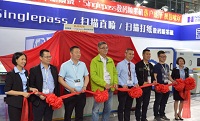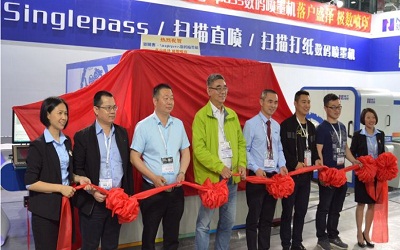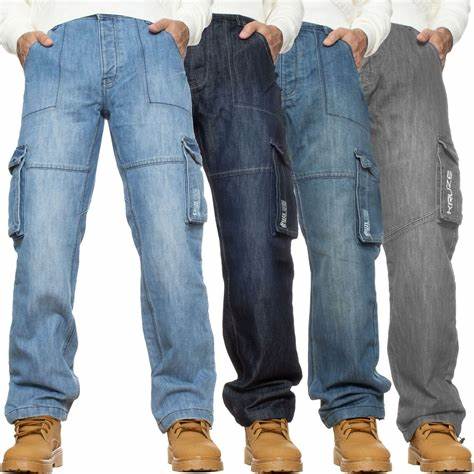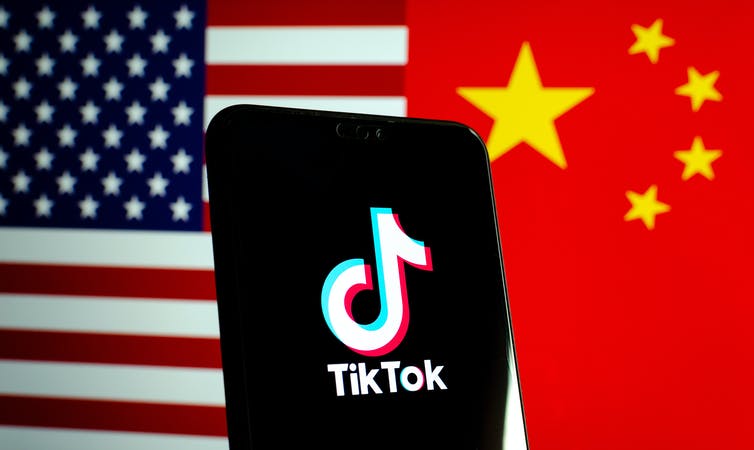FW
New manufacturing yarn processes and finishes are pushing towards a more sustainable delivery with a reduction of water. The textile industry uses billions of liters of water throughout all processing from dyeing to specialty chemical finishes that are applied to textiles in water baths to scouring, bleaching and softening. Through the Detox campaign Greenpeace has highlighted the damage of water pollution and use from the textile chain has had on the environment.
Greenpeace is campaigning to stop industry poisoning our water with hazardous, persistent and hormone-disrupting chemicals and the textile industry is embracing change in eco-friendly chemical use as well as water conservation. The importance of sustainability was featured at ISPO Texttrends in February and is now become a custom than a passing fad as the textile industry looks to new processes in reducing water and energy.
Textile manufacturer Schoeller and auxiliaries and dyes specialists at Textilcolor have developed Ecodye, a new auxiliary concept used, in particular, in polyester dyeing processes. The technology accelerates the dyeing process and contributes to cutting costs, while at the same time helping to preserve the environment with a low level of demand on resources. Ecodye also improves the dyeing levelness in polyester textiles. Spots and dye agglomeration are almost completely avoided, and the precipitation on the goods that arises as a result of polyester oligomers are no longer evident. On the other hand Ecodye provides good shade stability and avoids reproduction problems from batch to batch, reducing the rate of double staining and increasing the capacity utilization and productivity of the dyeing mill on a long-term basis.
SpinDye, which is a new company exhibits at ISPO this year, the company offers a different approach in the production of synthetics, in particular nylon and polyester. Final laundering of fabrics is becoming a process of the past. An innovative collaboration held at the recent Kingpins Show in Amsterdam for denim highlighted the company’s technology in this area, in creating finishes that have now water or chemicals involved. The Laser Blaze machine creates graphics on surfaces using light, whilst NoStone is a system that create stonewash effects with the use of pumice stones through ozone finishing.
Italian company specialising in high-end fabrics Brugnoli, has launched a new high-quality, zero-kilometer fabric line based on recycled yarn called B.Recycled. In order to guarantee fabrics with exceptional quality and undisputed performance, Brugnoli has a partnership with the Italian company Fulgar.
This zero-kilometer product line means the supply chain is monitored and certified throughout. The creation of B.Recycled by Brugnoli starts with a raw material recycling process carried out entirely at Fulgar laboratories and mills. Work then continues at the Brugnoli plant, where all the fabrics are created, produced and dyed in the same location.
In 2015 Brugnoli broke new ground with the launch of its Br4 technology for the creation of bio-based fabrics. The eco-sustainable production process enables the creation of extremely high-quality fabrics made using Evo by Fulgar, a bio-based yarn obtained from castor bean. Evo by Fulgar is an eco-friendly yarn that aims to provide total comfort and technical performance combined with light weight, stretch, breathability and fast drying, plus naturally thermo regulating and bacterio static properties.
Bangladesh Denim Expo will be held on May 17 and 18, 2017. This is an international platform showcasing the wealth of opportunities available in Bangladesh covering all aspects of the denim supply chain with exhibitors displaying fabrics, garments, threads, machineries, finishing equipments and accessories.
This season’s expo will deliver a dynamic environment to welcome all denim lovers and offer the perfect platform to develop new business relationships. The expo, with the participation of 12 countries and 58 exhibitors, will help promote the importance of sustainability, addressing environmental and ecological issues that affect business apart from promoting ways to improve and develop best working practices.
Participating countries are: Bangladesh, Brazil, China, Germany, Hong Kong, India, Italy, Japan, Pakistan, Spain, Turkey and San Marino. The event will feature the platform, Sustainable Apparel Forum, which is the first-ever forum in Bangladesh which will present the future potential, sustainability and competitiveness of the apparel industry in the country. In 2015, Bangladeshi denim products made up 22.88 per cent market share in the EU and 11.35 per cent share in the US.
Annual global denim sales amount to more than $56 billion, which is expected to touch $64 billion by the end of 2020.
Italian premium denim manufacturer Italdenim participated in the latest edition of Kingpins Amsterdam through a new company founded in December 2016, Pure Denim. And Gigi Caccia, Co-owner of Italdenim and Pure Denim along with Ilaria explains they strongly believe in the importance of sustainable denim production. He further explains in the last few years the company had to fight against aggressive low-price competitors and indebtedness caused by strong investment in adequate machinery following new sustainable productive standards.
The Caccia brothers want to rescue Italdenim, the company that continues producing denim for their group. Their aim is to once again touch their yearly target of making 8 million meter denim. Caccia further adds the company believes in the importance of sustainable production. During Kingpins, they showcased a completely new denim collection produced as per new smart and environmentally-friendly techniques.
Among the new environmentally-friendly products offered by the new company, was ‘Smart Denim’, a light gray denim that employs an innovative dyeing technique that uses only recycled graphite combined with Kitosan yarn, a bio-based finishing substance derived from crustaceous skin, that requires nor water nor chemicals when finishing denim.
The graphite-based dyeing technique was developed by WRAD a company co-founded by Matteo Ward, visionary entrepreneur sensitive to sustainable issues and involved in recycling graphite remains from industrial use in partnership with Perpetua, a pencil brand that is 100 per cent made with recycled graphite.
Gigi Caccia further said they believe recycling graphite for dyeing denim, like every new eco-friendly denim technology is the beginning of a new revolution in this market one can compare it to the birth of electric car in the car industry.
The 10th International Pakistan Textile Machinery and Garment Technology (IGATEX) 2017 exhibition opened its doors at the Karachi Expo Centre today. Exhibitors and organisers are optimistic about achieving their targets as more than 550 international and local manufacturers of textile machinery and technology from 35 countries are showcasing their latest products at the four-day exhibition.
There are 73 companies from Italy, 70 from Germany, 50 from China, 25 from Turkey and 80 from the host country Pakistan displaying their latest products. The highlight of this exhibition is some 20 companies from India are also participating through their representatives.
Pakistan is in a dire need of modern technology which is lacking in the frontline business. The country is lacking in modern technology which is causing an imbalance in garment industry, the recent example is Bangladesh although a cotton deficit country did trade worth $35billion in the last year.
The maiden IGATEX in 2002, had around 200 companies despite the threat of terror attacks and lack of law and order at that time and the number has increased to 550 in 2017.

Foshan New King Time Machinery (New King Time), also known for its NKT brand of machines, sold its first ‘Single Pass’ textile digital machine at the just concluded edition of TPF 2017. This latest machine was bought by Suzhou Super Digital Printing Technology. The event witnessed both by domestic and foreign media and visitors at TPF, created a lot of enthusiasm and excitement about the Single pass machine.

Single pass is the latest textile digital machine, known for its speed. The machine is being seen as the next level digital technology and can be termed as a bridge technology between existing digital machines and conventional rotary machines. It is available in various widths. As of now, only a handful number of these machines are installed, perhaps less than 15 across the world. The price range of $1.0-1.6 million, is much less compared to similar Italian machines.
NKT also displayed their scanning machines which can print both on paper and fabric, with disperse; reactive ink etc, this will be put into production soone. The company is looking to set up service points in China and abroad. In 2017, NKT plans to make inroads in the textile industry with a variety of digital printing machines.
As per latest figures from the Pakistan Bureau of Statistics (PBS), there has been 6.2 per cent rise year on year in textile and clothing exports which touched $1.064 billion in March this year, mainly driven by value-added products such as garments. Exports of readymade garments registered an increase of 19.5 per cent and knitwear rose to 5.4 per cent. Exports of bed-wear and towels increased 5.4 per cent and 15.8 per cent respectively.
Cotton yarn exports also saw a rise year-on-year of 5 per cent. A decline in exports of cotton cloth and yarn (other than cotton’s) was recorded at 5.5 per cent and 26.9 per cent.The receipts from silk, art and synthetic textile rose 2.7 per cent and the ones from raw cotton declined 2.9 per cent year on year. Exports of items like tents, canvas and tarpaulin rose by 71.8 per cent and made up articles excluding towels increased 16 per cent in the current nine months of this FY 2016-17.
The government in the preceding year had introduced a policy which provided a 4 per cent rebate on exports of readymade garments subject to a 10 per cent rise over previous year, 1 per cent on fabric and 2 per cent on home textile. The exporters were paid out Rs 2.5 billion in the last financial year by the government due to the introduction of this policy. This has made a steady growth to increase the value of Pakistan’s growth within four months.
Bangladesh has overtaken Pakistan as a leading cotton exporter even overtaking India and Vietnam. Pakistan which was the fourth largest exporter of cotton was overshadowed by Bangladesh in the race. Pakistan lead by is embroiled in its fight against terrorism, labor problems, corruption and growing Chinese monopoly. While Bangladesh faces extremism but it’s not affecting the market base. The European Union has allocated trade packages to Pakistan but the country has not utilised it fully. On the other hand Bangladesh has optimistically utilized trade packages provided by the European Union.
In July-December of the current fiscal year, Pakistan exported textile products worth $1.365 billion while Bangladesh clocked in $8.041bn from exports during the same period. Pakistan’s exports were just 17 per cent of the exports by Bangladesh. Textile exports from Pakistan, which is able to buy cheap cotton produced within the country, have been in declining, although they still constitute about 58 per cent of the country’s total exports. Even the Ministry of Commerce failed to bring any improvement in the situation. Neither incentive nor the commerce minister’s frequent visits to abroad could bring any positive change in this regard. In comparison Bangladesh textile exports was 82per cent of its total exports and 20 per cent of its GDP. Textiles made it the fastest-growing developing country, which achieved GDP growth rate of more than 6.5 per cent. Bangladesh has set a target of $50bn exports for 2021. Its exports are expected to surpass $40bn in 2020.
Foreign Investment is lacking in Pakistan due to terrorism. Pakistan mainly exports readymade garments, knitwear and bed-wear to the EU, which has the highest share in the country’s textile exports. In fact, Nawaz Sharif in January had announced a Rs 180 billion incentive package to boost exports. Easygoing textile exporters like to export cotton, cotton yarn and gray cloth, which are considered semi raw materials. Data shows Pakistan exported cotton worth $2.289bn in July 2016-Feb 2017, which is slightly lower than last year.
"Toronto Women's Fashion Week held recently focused on sustainable fashion paradigms. Peggy Sue Deaven-Smiltnieks's sophomore Peggy Sue Collection brought down the house with her farm-to-high-fashion designs one day after former Project Runway Canada star Evan Biddell showcased his saucy repurposed Value Village collection."

Toronto Women's Fashion Week held recently focused on sustainable fashion paradigms. Peggy Sue Deaven-Smiltnieks's sophomore Peggy Sue Collection brought down the house with her farm-to-high-fashion designs one day after former Project Runway Canada star Evan Biddell showcased his saucy repurposed Value Village collection.
Today, ethical fashion brands are going after a growing demographic of ‘aspirationals’ – a mix of hopeful millennials and Gen-Xers that like to shop but prefer supporting brands with integrity. In the past, a lot of companies just tagged ‘organic’ or ‘green’ on garments because it was trendy. In a post-Paris-climate-change-agreement world, economic drivers for sustainability have changed gears. There's a lot more awareness around how to have a triple bottom line approach (people, planet, profits), says Kelly Drennan, who's worked with over 400 designers and brands as founder of sustainable fashion non-profit Fashion Takes Action. Brands are entrenching sustainability throughout the supply chain. They are building proper sustainability teams instead of just tacking on a sustainable marketing director and greenwashing.

Lately Mango has a new, mostly organic cotton collection in stores this season called Mango Committed. Zara has rolled out more than 150 products for the second season of its Join Life collection, spotlighting, amongst other green fabrics, a cool new closed-loop material called Refibra made of recycled Tencel and cotton scraps. H&M's Conscious collection is bigger than ever, including – just in time for Earth Day – a pleated gown in a fabric called Bionic, a polyester made from recycled plastic shoreline waste. The Swedish clothing giant now says it is 26 per cent of the way toward its target of using exclusively sustainable fabrics by 2030.
In the past too, there have been many instances of organic clothing from Aritzia (with its once-green Community line), Lululemon (the Oqoqo line), Levi's, even La Senza, but all these brands pulled them quite soon. How will the sustainable fashion wave tide through the storms remains to be seen?
Sustainability a growing expanse
A 2016 report by the Clean Clothes Campaign, International Labor Rights Forum, Maquila Solidarity Network and Worker Rights Consortium on the safety action plans for H&M's suppliers in Bangladesh concluded that the majority of H&M's factories are still not safe. Greenpeace, however, considers H&M, Zara and Benetton industry leaders for purging a long list of nasty water- and air-polluting chemicals that poison rivers and lungs in places like China and India. So far, 76 major brands, retailers and suppliers have pledged to clean up their acts as part of Greenpeace's Detox My Fashion campaign.
As of now, 100 brands have joined environmental non-profit Canopy Style's push to stop sourcing fabrics derived from ancient and endangered forest. At this point, more than 70 million trees are logged every year (and dissolved with alarmingly neurotoxic chemicals) to make silky forest fibres like rayon/viscose and modal.
How are Indian designers faring?
Back home, designers are also doing the math to distinguish themselves and let consumers know they are producing more thoughtfully. Instead of grinding out fast fashion in dizzying quantities, they are slowing production schedules, making more durable, seasonless garments and aiming for zero waste, all while trying to pay workers a decent wage.
US cotton exports in 2016-17 are forecast to rise 53 per cent from the previous season. Overall, the US share of world trade is expected to reach 39 per cent, up 26 per cent from the last season, which would be the highest level in six years.
The US share of China’s cotton imports has rebounded remarkably from 11 per cent last year to 35 per cent. For Vietnam, Indonesia, Pakistan, and Bangladesh, US cotton exports for the August-February period are up by more than 140 per cent. This further supports the strong share of the US in the global market.
As for other countries, India’s exports are down to four million bales as high domestic prices have slowed sales. Australia’s exports are down to 3.9 million bales as old crop stocks are exhausted and yet-to-arrive new crops face stronger competition. Uzbekistan’s cotton exports are down to 1.5 million bales on lower demand in some of its major markets as well as policies withholding supplies for domestic use.
Greece’s exports are expected to rise on higher production as well as a strong pace of trade to date. Similarly for Brazil on higher carrying stocks due to reduced use estimates in the back year.











